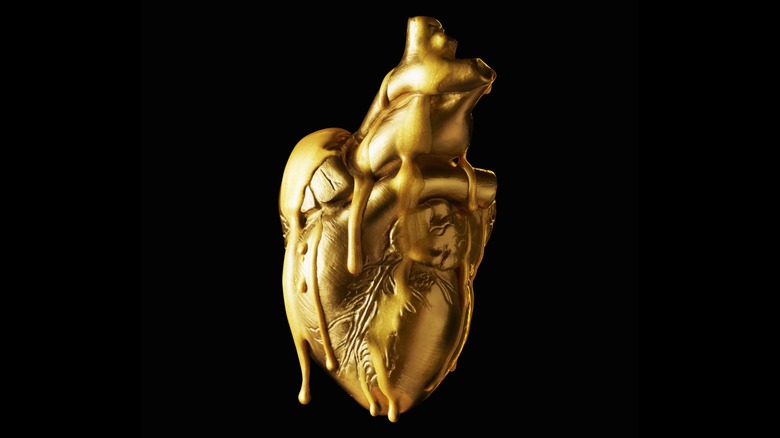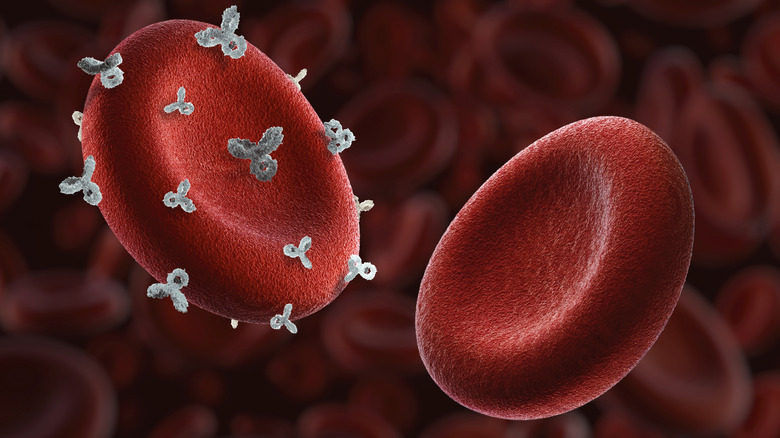Why 'Golden Blood' Is Considered The Rarest Blood Type
To say that blood is vital is a huge understatement. It flows through the organs that make up the circulatory system — the heart and blood vessels and veins — delivering oxygen, nutrients, and hormones throughout the body while supporting the immune system and removing waste products. When it comes to blood types, though, Rhnull is one of the rarest and hardest to find, which is why it's referred to as "golden blood." To understand why it's so rare, though, it's helpful to understand how blood types are determined.
All blood types are classified by the absence or presence of antigens, which are proteins attached to red blood cells that the immune system attacks if it's unfamiliar with them. That's what the negative and positive (respectively) refer to with the eight blood types you're probably familiar with — A+, A-, B+, B-, AB+, AB-, O+ and O-.
Along with the ABO system of grouping blood, labs also use the Rh system to categorize blood types. RhD is the most common of more than 50 Rh antigens that are tested, so many blood types are also either RhD negative or positive. What makes Rhnull so special, though, is that the red blood cells have absolutely zero antigens attached to them. Cleveland Clinic transfusion medicine physician Zaher Otrock said in a statement, "We test for RhD because it's the one that's most likely to trigger an immune reaction [...] But it's definitely not the only one to consider."
What it means to have the Rhnull blood type
Doctors believed that, because of the lack of antigens, having Rhnull blood was an early death sentence until 1961, when an indigenous Australian woman was found to have it. Since then, fewer than 50 people have been discovered with this type. Unfortunately, there are some upsides and downsides to this blood type — mainly when it comes to transfusions.
Various factors affect how many gallons of blood are in the human body and up to 40% can be lost before dying or suffering serious complications. Administering the correct blood is crucial during transfusions. If patients receive the wrong type, their immune system could attack the red blood cells, potentially causing a life-threatening reaction. People with Rhnull are, fortunately, universal donors for other individuals who have rare Rh blood types because the red blood cells don't contain antigens. It's similar to how O- blood can be used to save people with any common blood type. However, while having type O blood could put you at greater risk for a painful death, Rhnull individuals can only safely receive their type of blood.
American Rare Donor Program director Sandra Nance told Smithsonian Magazine, "There are nine active donors in the whole community of rare blood donors. Nine." Separately, Dr. Otrock suggested in a statement, "For people who live with Rh null blood, the best options would be to donate and freeze their blood to use in case of planned surgeries and to carefully manage things like anemia (low blood count) with measures like iron or folic acid to avoid transfusions whenever possible." Still, it could be worse. There's one woman who is the only known person with her blood type, Gwada negative, making her "the only person in the world who is compatible with herself," according to the scientist who announced the discovery.

